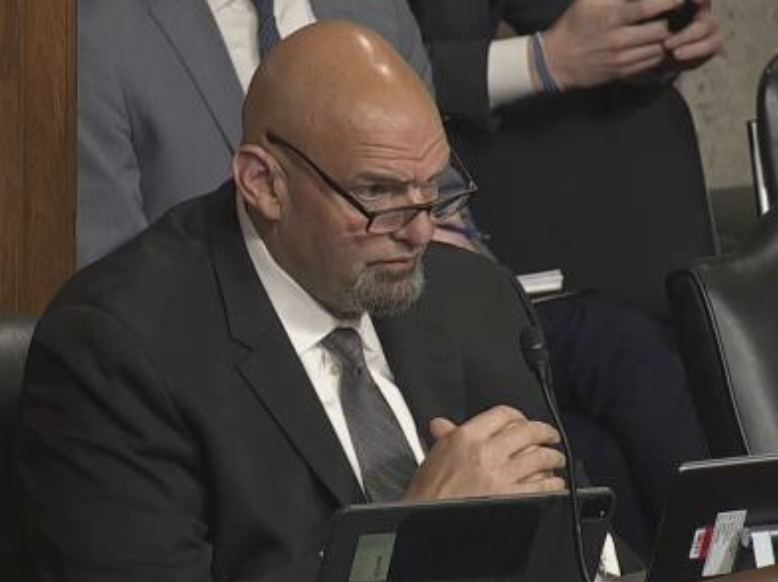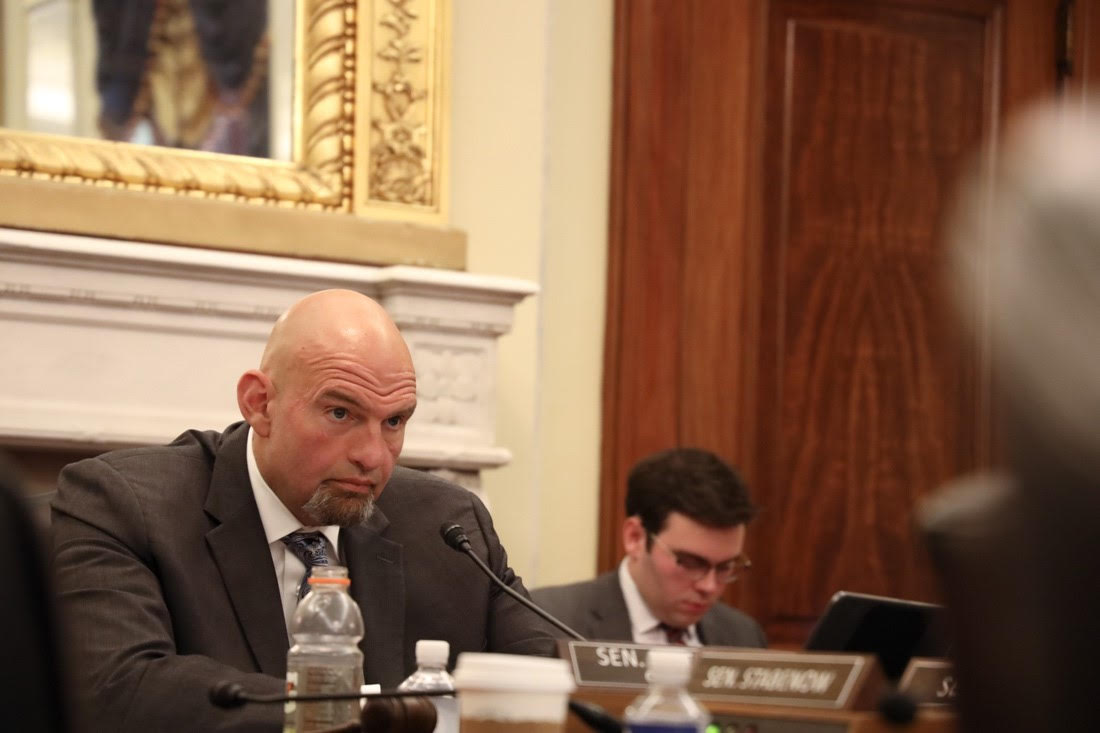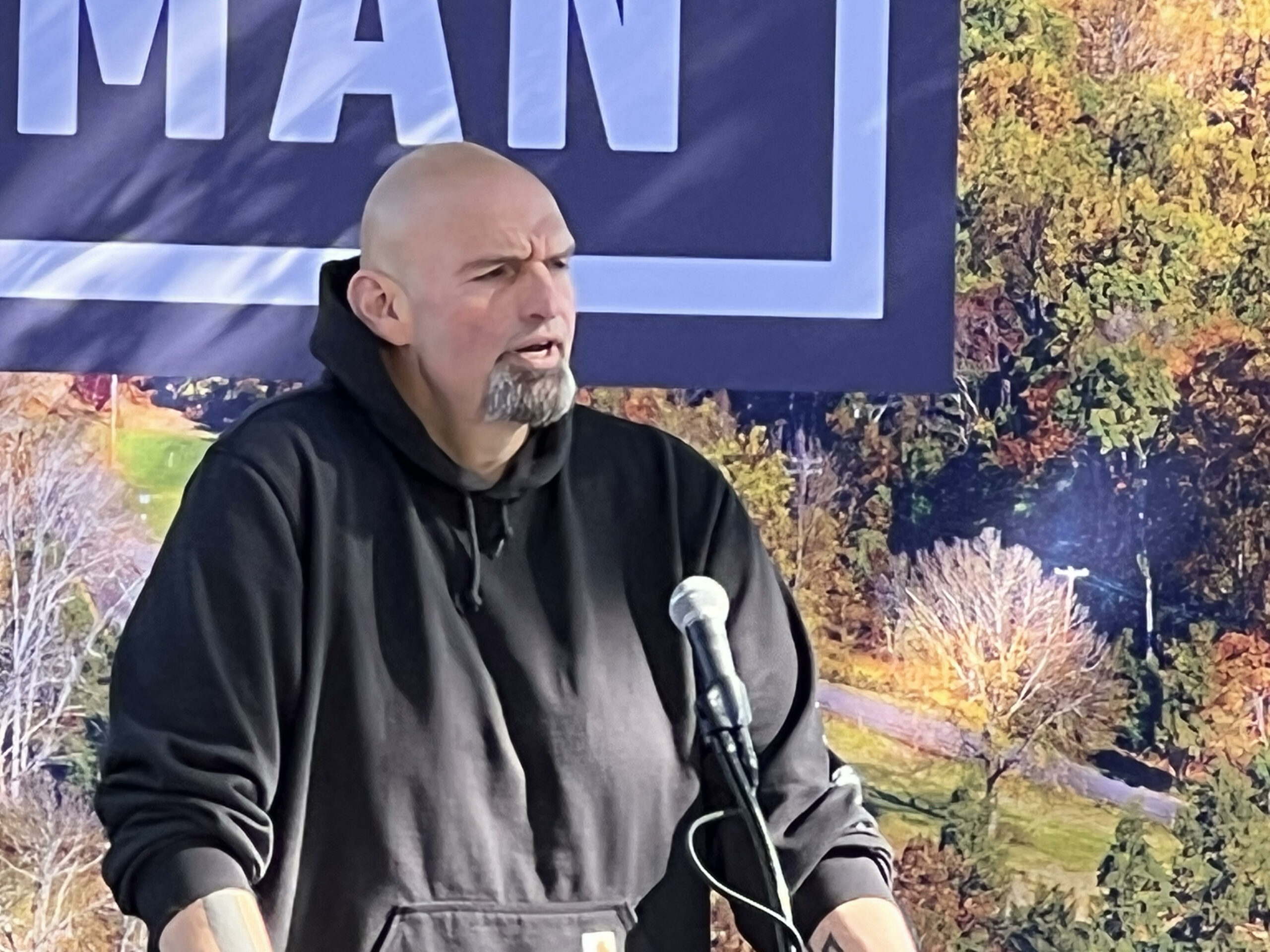Fetterman’s ‘Borderline Incoherent’ Performance in Committee Hearing Raises Concerns

Pennsylvania Sen. John Fetterman’s stammering, unsteady delivery during a Senate Committee hearing — and media attempts to cover it up — are raising questions once again about the Democrat’s ability to fulfill his duties, with one commentator labeling his performance “borderline incoherent.”
Fetterman was participating in a Senate Banking Committee hearing, where former Silicon Valley Bank CEO Gregory Becker was answering questions about his institution’s collapse.
According to The Washington Post’s Jeff Stein, Fetterman said at one point, “Shouldn’t you have a working requirement after we bail out your bank? Republicans seem to be more preoccupied with SNAP requirements for hungry people than protecting taxpayers that have to bail out these banks.”
But a video of Fetterman’s comments is transcribed as follows:
“Shouldn’t you have some kind of working required after we sail your bank us billions of your bank? Because you seem we were preoccupied, uh, when, uh, then SNAP us requirements for works for, uh, hungry people but not about pro, protecting the tax, tax papers you know that will bail them out of whatever does about a bank to crash it.”
Later in the hearing, Fetterman said to Becker, “Is. Is it staggering? Is it a staggering a, res, uh, responsibility that ju— that a head of a bank could literally, could literally crash our economy? It’s astonishing.”
Fetterman only recently returned to the U.S. Senate after spending six weeks at Walter Reed Military Medical Center being treated for clinical depression. The depression is believed to be a consequence of a major stroke Fetterman suffered during last year’s U.S. Senate race.
Trending Politics co-owner Collin Rugg called Fetterman’s remarks “the most painful 90 seconds you will watch all month.”
Fox News reporter Houston Keene wrote Fetterman was “borderline incoherent” during his remarks, claiming the senator “appeared to struggle through his opening statement.”
“We are told we are to salute him for his bravery,” said John Podhoretz, editor of Commentary magazine, “but if his aphasia is so severe he cannot speak… he obviously can’t perform his duties in the way that he should.”
Fetteman’s performance has been compared to that of fellow Democrat Dianne Feinstein (Calif.), the 89-year-old senator who has missed months of votes in the Senate due to extreme age and illness.
When asked about her absence, Feinstein told a writer with Slate.com, “No, I haven’t been gone.”
When asked whether she meant that she’d been working from home, Feinstein responded, “No, I’ve been here. I’ve been voting,” she said. “Please. You either know or don’t know.”
Even progressives are now urging Feinstein to step down due to her inability to do her job.
“If you’re a Democratic senator and you’re not at least privately urging Feinstein to resign and urging Schumer and Durbin to take action, you have failed the people who sent you to Congress. You’re lying to yourselves that this is *okay*,” tweeted MSNBC Host Mehdi Hasan.
But elected Democrats in Congress are standing by Feinstein.
“I don’t have a medical degree, so I’m not going to comment on how she’s feeling or what she looks like,” said House Caucus Chair Rep. Pete Aguilar (D-Calif.), though he added, “We expect Senate Democrats to have our backs on some of these votes and discussions … I appreciate the fact that she’s back working and we wish her nothing but the best.”
Fetterman’s staff acknowledge Fetterman has problems, but they insist all is well.
“We have been clear for literally months and months that John continues to have auditory processing issues due to the effects of his stroke,” Fetterman spokesman Joe Calvello told Fox News.
“If sickos on the internet want to keep making fun of John for recovering from a health challenge, that’s between them and their consciences.”









